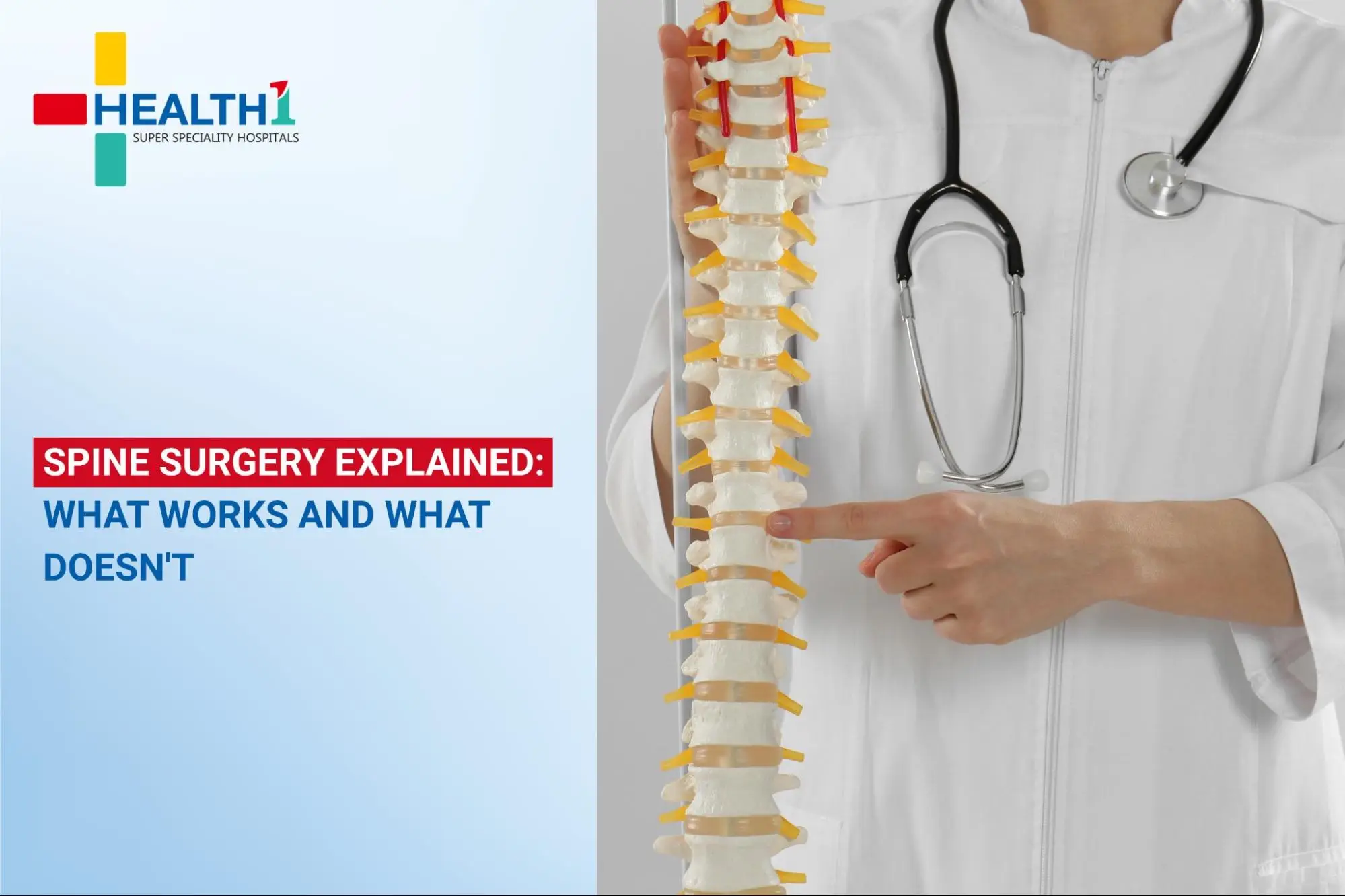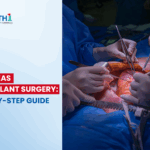Spine surgery is often considered when non-surgical treatment fails to relieve persistent back pain or neurological symptoms. This can offer significant relief and restore mobility, especially when a clear structural problem is identified. However, understanding the scenarios is equally important where surgery cannot distribute the expected results.
When spinal surgery is effective
Spine surgery is successful when there is a specific, diagnostic issue that can be cured through an operative process. Here are some cases where it usually works well:
1. Herniated Disc Treatment (Discectomy)
In cases where a disc is slipped and putting pressure on a spinal cord nerve, patients may experience acute pain or numbness. A discectomy, where the problematic part of the disc is removed, can provide immediate and long -lasting relief.
2. Spinal Fusion for Instability
Spine Surgery in Ahmedabad is a special process that aims to stabilize the spine by fusing two or more vertebrae. This approach limits abnormal speed and provides added support to the structure. It is often recommended for management of conditions such as degenerative disc disease, scoliosis, or spinal fracture.
3. Disintegration process (Laminectomy)
A laminectomy is a surgical technique in which a portion of the vertebral bone is taken out to reduce the pressure on the spinal cord or the surrounding nerve roots. It is particularly effective in treating spinal stenosis and improving the ability to walk in affected individuals.
4. Minimum Invasive Technology
Recent development in minimally invasive spine surgery (Miss) allows for fast recovery time, low hospital stay and small incisions. These techniques are effective for various spine conditions, including disc issues and stenosis, and have less effect on the surrounding tissues.
When the Spinal Surgery Cannot be Responded
Although spine surgery can be effective, it is not suitable for all cases. In cases of normal or non-specific back pain without obvious physical cause, surgery often fails to provide relief. Chronic muscular pain or conditions affected by psychological factors usually do not benefit from surgical treatment.
Patients with vague symptoms or vague diagnoses may not see any improvement – and in some cases, pain or complications may experience deteriorating after surgery.
Risks and Precautions
Each surgical process has some level of risk. Frequent complications may include infection, bleeding, nervous damage, or inability to completely resolve the original symptoms. One of the most related results is known as unsuccessful back surgery syndrome, where patients suffer from pain despite undergoing surgery.
This is why it is important to have a detailed discussion with your spine surgeon, ask questions, and even to take another opinion in a specialist hospital. Knowing your options helps you to avoid unnecessary or ineffective processes.
Take the Right Decision
Choosing spinal surgery is a major step and should be made only after the discovery of all conservative remedies. If you are researching options such as spine surgery in Ahmedabad, be sure to review credentials, technology and patient experiences through a reliable Healthcare Website. This ensures that you are selecting a feature that aligns with your needs and expectations.
In an emergency where there are symptoms such as bladder control or loss of leg weakness, visit a hospital near my emergency without delay. These can be signs of severe spinal compression, which requires immediate attention.
The patient may want to consider consulting with a general hospital to receive a dedicated specialist hospital for a comprehensive evaluation, or more concentrated evaluation and treatment plan.
Conclusion
Spinal surgery can be incredibly effective for the right conditions – but it is not a universal fix. This best works when the issue is structural and well -known. Always consult qualified professionals, assess all risks, and weigh non-surgical options before making decisions. When properly performed, the spinal surgery can help restore the quality of life and functional freedom.








